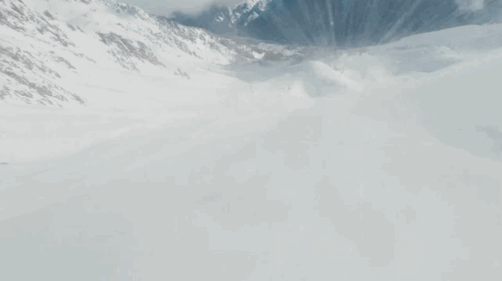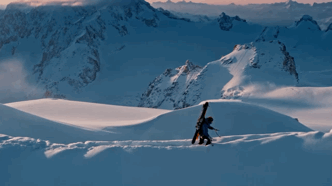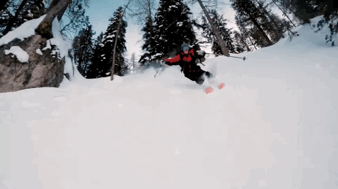In the Northern Hemisphere, winter is synonymous with snow and skiing, and every year, skiers cannot wait to get onto the slopes, enjoy the fresh air, and take pleasure in looking at the beautiful landscapes around them. The COVID-19 pandemic changed all this. In the winter of 2020/21, many ski resorts were closed to the general public, and the slopes remained untouched. The Freeride Ski Film FLOW is the result.
However, challenges can also turn into opportunities. Here is an example of a creative team that produced a unique film shot in immaculate new snow during lockdown with the help of DJI gear and drones.
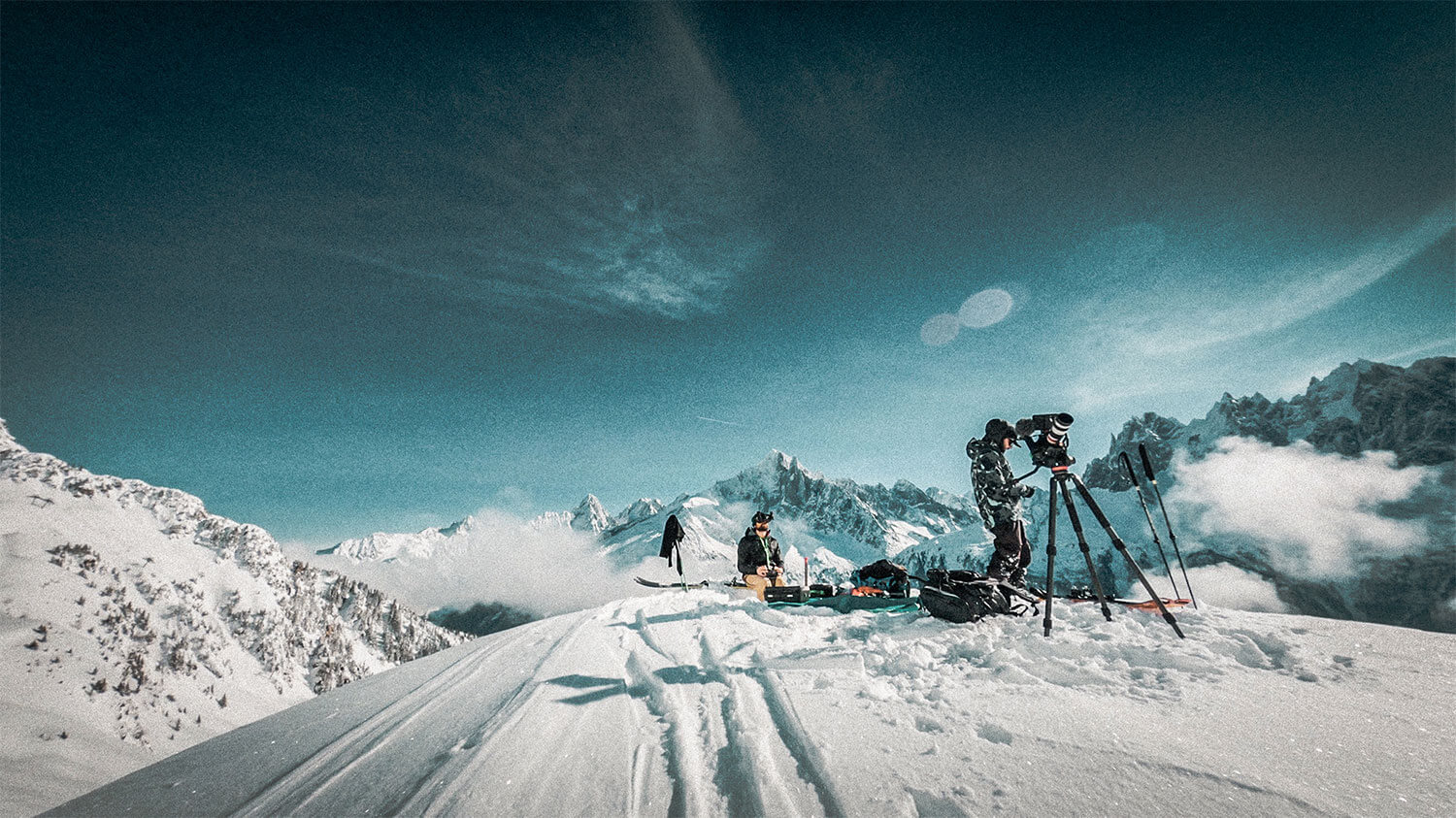
ViewPoints interviewed the team to find out where the project came from, what motivated them, how they realized that drone technology would be an essential tool during the shoot, and how they overcame the challenges during the production of this once-in-a-lifetime film.
Location: Chamonix-Mont-Blanc.
Team: Sam Favret (Freeride Skier) | Maxime Moulin (Director) | Hensli Sage (Drone Pilot)
Equipment: DJI Digital FPV System, DJI Inspire 2 with Zenmuse X7, DJI Mavic 2 Pro
Result: The mind-blowing film, FLOW and the making of the film
The FLOW team
Sam Favret is one of the best freeride skiers on the international scene. According to Maxime, Sam has his own style and way of approaching lines, drawn from his spiritual and authentic personality. He is a skier who reflects his action as much through performance as through the images that show what he is doing.
Maxime Moulin has been fascinated by extreme sports movies for a long time, and he works with amazing athletes and technicians who have become essential in making his films. “Ski films are my specialty, my laboratory,” says Maxime. “I like the raw side of the action, the fact that we don’t cheat, we have to tell the truth, we see athletes who cannot pretend but simply have to perform.”
Hensli Sage fell in love with drones when DJI Phantoms became mainstream. He trained in extremely challenging situations and takes pride in shooting the environment around him to maximum cinematic effect. “I got into drones in 2014 without any prior experience of making videos,” says Hensli. “I was blown away by the opportunities offered by drones; aerial photography became accessible to everyone. We were starting to see aerial images from everywhere, the revolution was on.”

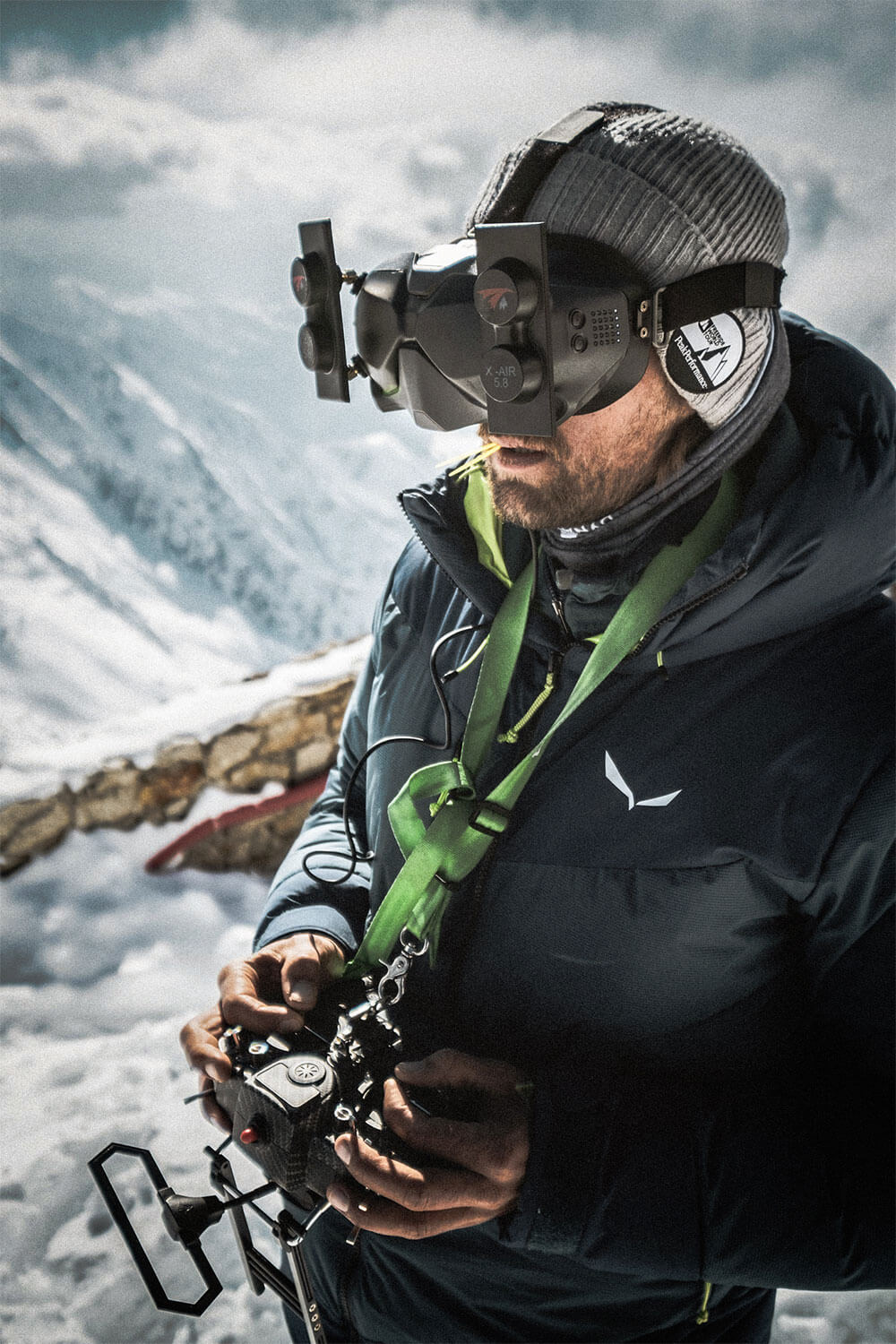
Opportunity and Challenge
At the start of winter 2020/2021, the team realized the unique opportunity of exploring the slopes of Chamonix-Mont-Blanc during the lockdown. With all ski lifts restricted from operation, the mountains were empty of humans for the first time in generations. The team was facing peaks that were immaculate with fresh snow.
“The scenery was pure, almost untouched. There was a feeling of freedom in what we could do. It was calmer than usual, more relaxed,” remembers Maxime. The team was sure this was a historic moment.
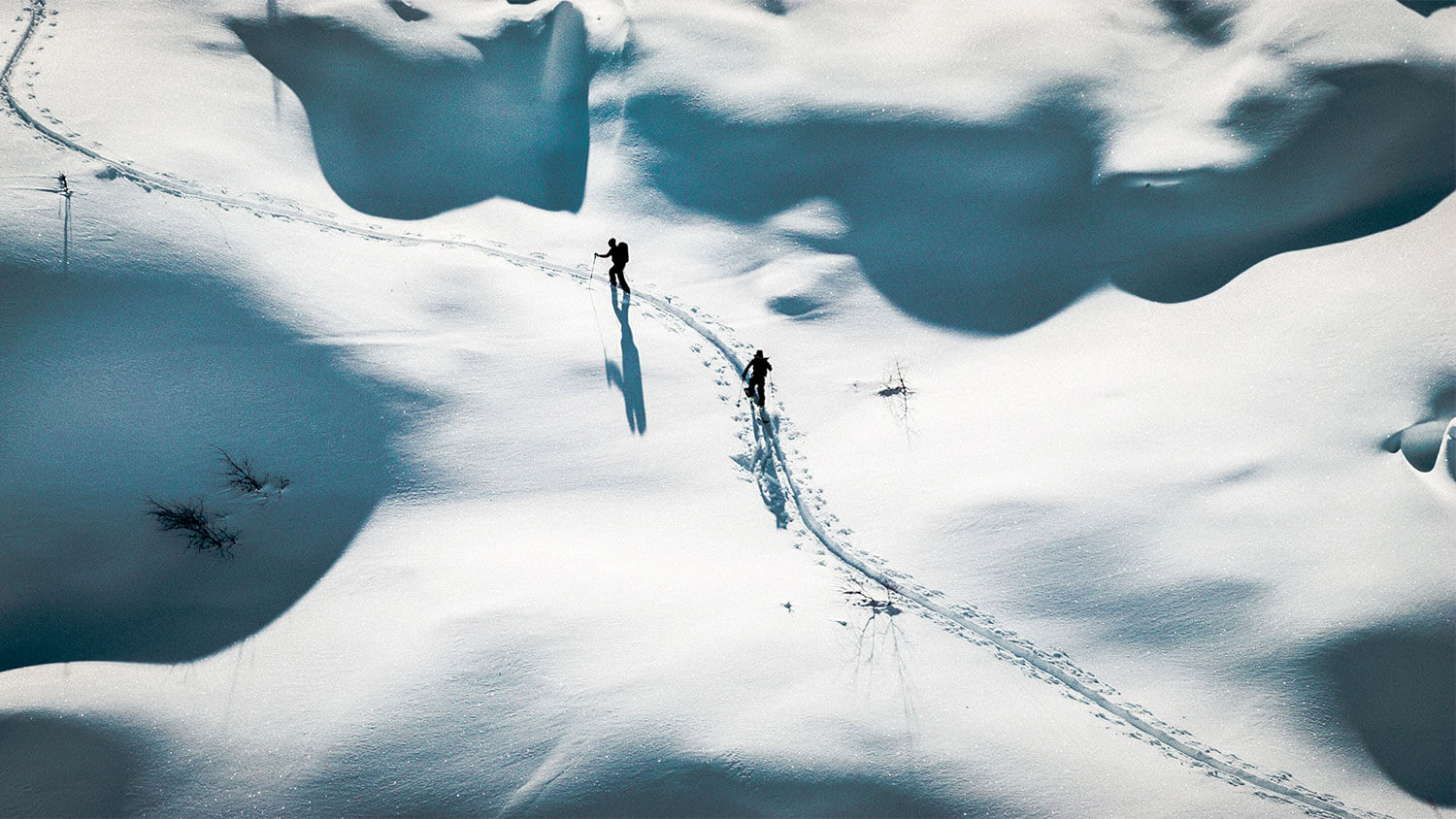
With no lifts to board, the team walked from the valley to the peak, climbing up to five hours through deep snow, again and again. “I knew it was going to be a physical challenge,” says Maxime, “but I did not realize to what extent.”
However, the drones offered the team maximum flexibility regarding their time on the mountain and avoided the limited logistics of fixed cameras that could only shoot very short sequences at a time. That would have required more shooting time and more tiring effort by all participants. In addition, the drones also offered a layer of safety that could not have been achieved by sending a camera operator with traditional equipment up the mountain.
Logistics of the Flow Shoot
FLOW is 100% made from drone footage, and the team alternated between FPV drones, DJI Inspire 2 with Zenmuse X7, and DJI Mavic 2 Pro to get the best possible results. Hensli’s FPV drones integrated the DJI Digital FPV System. “This digital HD system provides unparalleled quality feedback,” says Hensli. “Being able to see the environment in which you are operating is essential to feeling confident and to being able to fly at high speed close to the ground.”
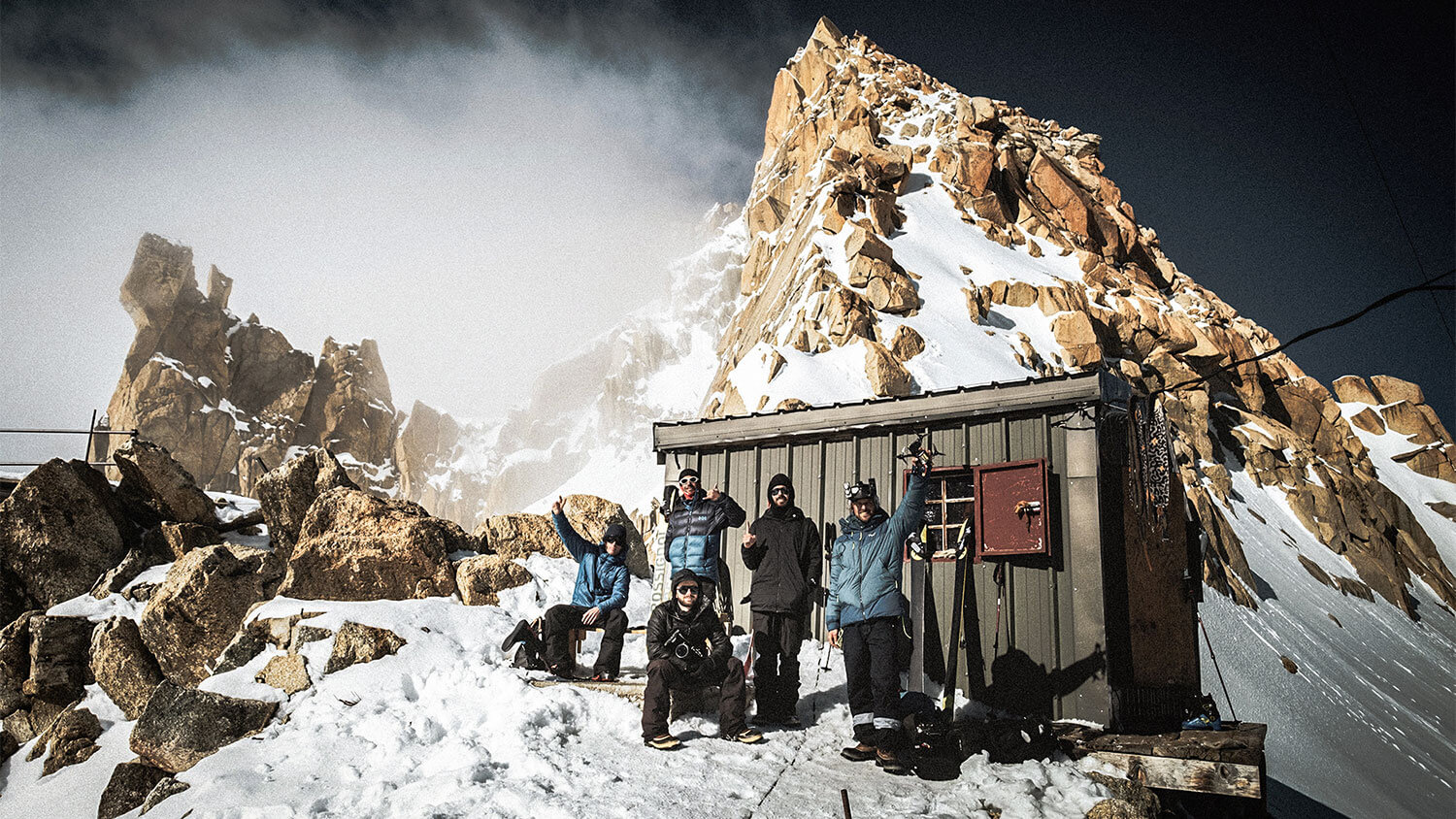
But how did the team communicate while Sam was hurling himself down the mountain at breakneck speed?
It required careful preparation by using radio and phones before and during Sam’s descent.
As Maxime describes it: “Filming with a ground camera, we can communicate directly and visually. When filming with a drone, the distance requires having a detailed discussion before the shooting and to liaise with a radio or phone during the action to adjust the shots.” First, Hensli did a reconnaissance flight, and then the team planned the shot. Once up and ready to ski, Sam called Maxime and Hensli on the radio or phone. They checked again and agreed on the best ways to ski and fly together. Action!
The Reward
In the end, the team’s resilient spirit, inspiration, skills, and effort paid off as FLOW was awarded the best international short ski film of the 2021 High Five Ski Film Festival in Annecy, France. “This award is an important recognition for us. It brings visibility to our work and a great degree of motivation for our upcoming projects,” says Maxime.
While recognition and praise for this film were well deserved, the true gift remains to be the project itself. At its heart, FLOW is the celebration of undeniable talent, put into focus by a shared belief in a single vision. And if it inspires others to seize their wildest dreams and make them into a reality, then there is no greater reward for this team.
